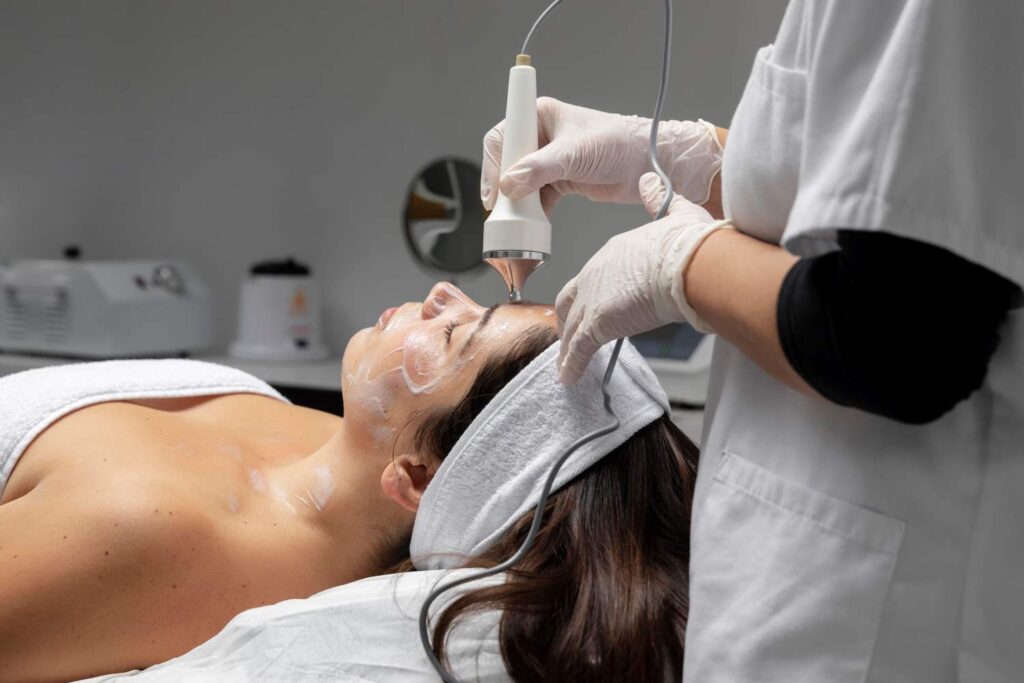
Fractional CO2 laser skin treatment resurfacing offers a non-surgical approach to rejuvenate the skin, often referred to as a non-surgical facelift. It’s an effective treatment for various skin concerns, including wide pores, acne scars, pigmentation, fine lines, wrinkles, sun damage, and sagging skin. CO2 laser treatments offer safe and precise ablation, making them suitable for addressing specific skin concerns such as milia removal, acne scar treatment, and wart removal, among others.
The carbon dioxide laser emits light at a precise wavelength within the mid-infrared spectrum, specifically at 10600 nm. This wavelength is highly absorbed by water molecules, making it effective for targeting water-rich tissues like skin.
The safety of Fractional CO2 laser treatment during pregnancy or while breastfeeding has not been established, so it's typically avoided during these times.
Patients with active bacterial, viral, or fungal infections on the treatment area may be at risk of complications if they undergo Fractional CO2 laser treatment. It's essential to wait until the infection resolves before proceeding with the procedure.
Individuals with a history of keloid scarring, autoimmune disorders, connective tissue disorders, or poorly controlled diabetes may not be suitable candidates for Fractional CO2 laser treatment due to an increased risk of adverse effects or complications.
Patients who have taken isotretinoin for severe acne within the past six to twelve months may need to wait until the medication has cleared from their system before undergoing Fractional CO2 laser treatment due to an increased risk of poor wound healing and scarring.
Patients with a history of skin cancer or precancerous lesions may need to avoid Fractional CO2 laser treatment in the affected area, as it could potentially stimulate the growth of cancerous cells or interfere with ongoing treatment.
Fractional CO2 laser treatment can produce significant improvements in skin texture and appearance, but it's essential for patients to have realistic expectations about the outcomes. Individuals with unrealistic expectations may not be suitable candidates for the procedure.
Fractional CO2 laser treatment may not be suitable for individuals with darker skin tones, as they may be at higher risk of pigmentation changes or scarring from the treatment. It's crucial to assess each patient's skin type and characteristics to determine the appropriateness of Fractional CO2 laser treatment.
Depending on the treatment area, sessions can last from a few minutes up to an hour.
With minimal Downtime, recovery can vary from a few days to two weeks, depending on the intensity of the treatment.
The number of sessions varies based on individual skin conditions and desired results, but multiple sessions are often recommended.
Common side effects include redness, swelling, and a sunburn-like sensation, with potential for slight bleeding and scabbing.
Initial improvement is often seen within a few weeks, with full results visible after several months as the skin continues to heal and produce collagen.
Post-treatment care includes avoiding direct sunlight, using prescribed skin ointments, and keeping the skin moisturized.